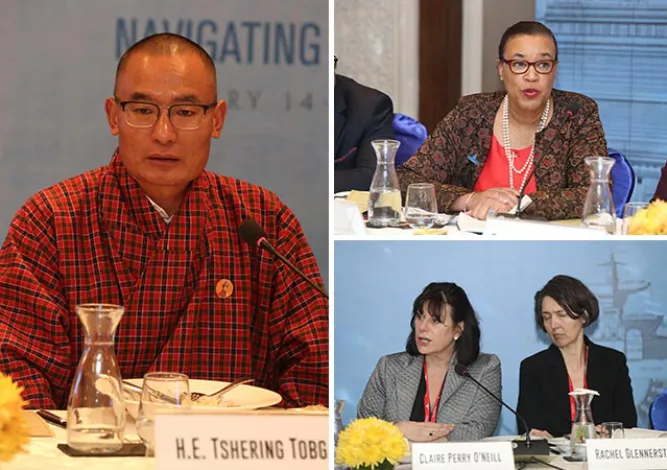-
CENTRES
Progammes & Centres
Location

It is now well understood that emerging economies will require trillions of dollars in finance to develop the infrastructural capacity necessary to create economic growth and social mobility for billions of individuals. Globally, states are confronted by the challenge of building this capacity while taking into account the adverse implications of climate change. To address this gap, the Coalition for Disaster Resilient Infrastructure (CDRI) was incubated by Prime Minister Modi at the New York Climate Action Summit 2019. This international organisation promotes global and multilateral solutions to the challenges of climate change mitigation and adaptation in the context of infrastructure building.
To support this effort, the CDRI and ORF jointly hosted a multi-stakeholder lunch round table on the sidelines of the Raisina Dialogue 2020. The round table intended to bring together a range of stakeholders to identify how international cooperation and mutual exchange can promote disaster and climate resilient infrastructure.The conversation centred around the following themes:
Synchronising Efforts: The panelists agreed that building climate resilient infrastructure will require a synchronous effort across multiple business and governance operations, including the financial community, infrastructure developers, aid and assistance policies, knowledge creation and international organisations.
Multi-stakeholder Cooperation: Senior representatives from international organisations made the case for broader cooperation and stakeholder outreach. The Coalition is already supported by nearly 45 states—and will benefit from regular dialogue with business and civil society.
Methodologies and Knowledge Report: Experts highlighted the need to harmonise research frameworks and data collection tools that can better inform policy making. A uniform lexicology and methodology for building climate resilient efforts will reduce the economic and intellectual costs that developing states will have to invest in.
Regional Cooperation: Senior Representatives from South Asia stressed on the need to create regional platforms and avenues to share information, technology, Human Resource’s and best practices to effectively invest in climate and disaster resilient infrastructure. The pointed out that the South Asias region is at once most prone to climate change and the leading provider of solutions to mitigate its effects.
Indian Leadership: The panelists praised Indian leadership and agreed that global and multilateral initiatives like the CDRI represent an important response by the international community in the battle against climate change.
The views expressed above belong to the author(s). ORF research and analyses now available on Telegram! Click here to access our curated content — blogs, longforms and interviews.